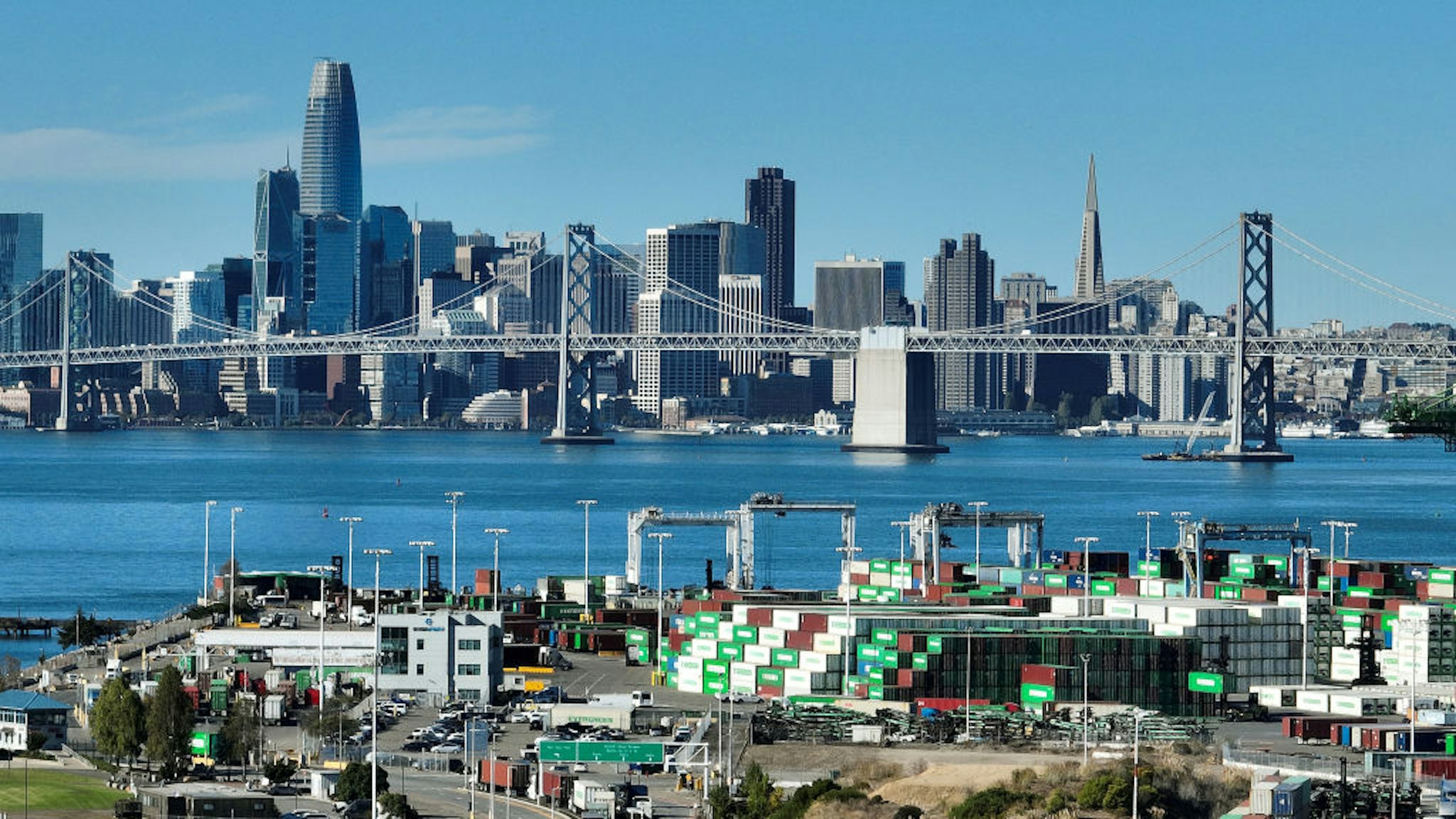By Mairead Elordi
 Justin Sullivan/Getty Images
Justin Sullivan/Getty ImagesA looming dock worker strike could throw the economy — and the presidential election — into chaos, an October surprise that would likely hurt Democrats.
The International Longshoremen’s Association, which represents about85,000 dock workers nationwide, is threatening to strike on October 1 if the union cannot reach an agreement with port ownership. Negotiations broke down in June between the union and the United States Maritime Alliance, which represents port management. The two sides are in a stalemate over both wages and the automation of port operations.
A strike would shut down five of North America’s 10 busiest ports, 36 ports total along the East and Gulf Coasts, and cause massive supply chain issues — which, depending on how long the strike lasts, could impact consumers past Election Day and well into the holiday season. If the supply chain is upended like this causing scarcities, we are also likely to see another nasty bout of inflation just as families are trying to recover from the nearly 20% spike in prices since before the pandemic.
The Biden administration has the power to stop strikes that could threaten national security or severely impact the economy. But the White House has said it will not intervene in a dock worker strike, and is encouraging the two sides to get back to the negotiating table.
The global economic turmoil wrought by a strike of this size cannot be overstated.
The ports that would be affected move nearly half of all U.S. imports, and billions of dollars in trade each month. The ripple effects on supply chains in Europe, Asia, and Latin America would also be significant.
None of this is likely good for Democrats.
Election Day is only six weeks away, and Vice President Kamala Harris is locked in a nail-biter of a presidential race against former President Donald Trump. Harris is currently leading by two points, a smaller lead than Hillary Clinton had in 2016 before losing to Trump. A strike would begin on October 1, the day of the vice presidential debate between Democrat Tim Walz and Republican Sen. JD Vance.
Even the threat of a strike is causing economic uncertainty at a time when the economy is not exactly Democrats’ strongest issue. About 60% of Americans disapproved of President Biden’s handling of the economy in June. Harris is only just starting to catch up to Trump’s approval rating on the issue.
It’s unclear why Biden won’t intervene, though some have speculated that the president is unwilling to go out of his way to help Harris after Democrats ousted him from his reelection campaign over the summer. Others have wondered whether Biden is courting the dock worker union at a time when the union vote is not coming easily to Democrats.
Last week, a group of House Republicans on the Transportation and Infrastructure Committee wrote to President Biden urging his administration to do everything in its power to prevent a strike that could lead to “dire impacts to our supply chains, our economy, and the American consumer.”
Even a one-day strike could take a week to recover from, industry insiders say. A strike that lasts a week would take several weeks of catch-up work, and the effects of a strike that lasts several weeks would be felt well into 2025. Meanwhile, retailers would suffer shortages throughout the holiday shopping season, their busiest time.
Any work stoppage is still over a week away, but the effects of a potential strike are already being felt.
longshoremen are overpaid worthless pricks. Go ahead and shut it down.
ReplyDeleteShould have built the NAFTA highway from Mexico to Oklahoma as was proposed . Then unload the boats from the US west Coast in Mexico's west coast and bypass Long Beach all together.
ReplyDelete